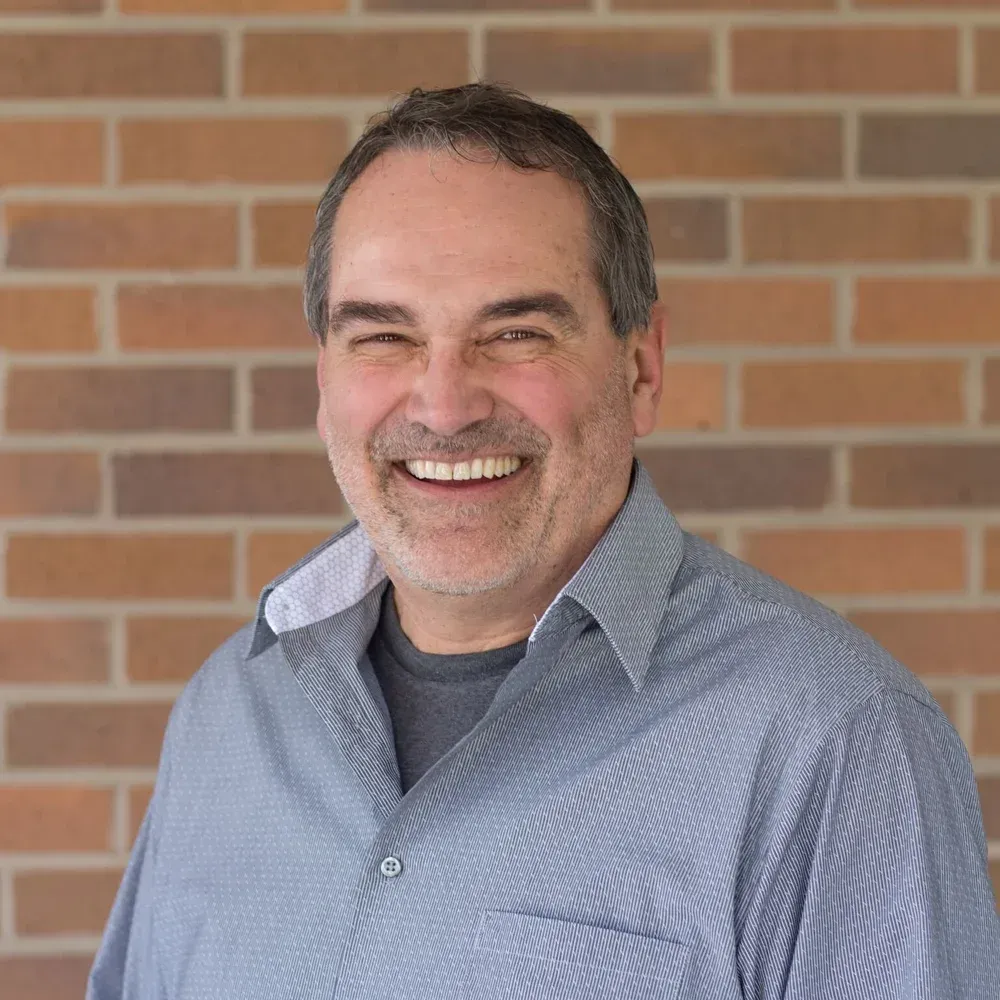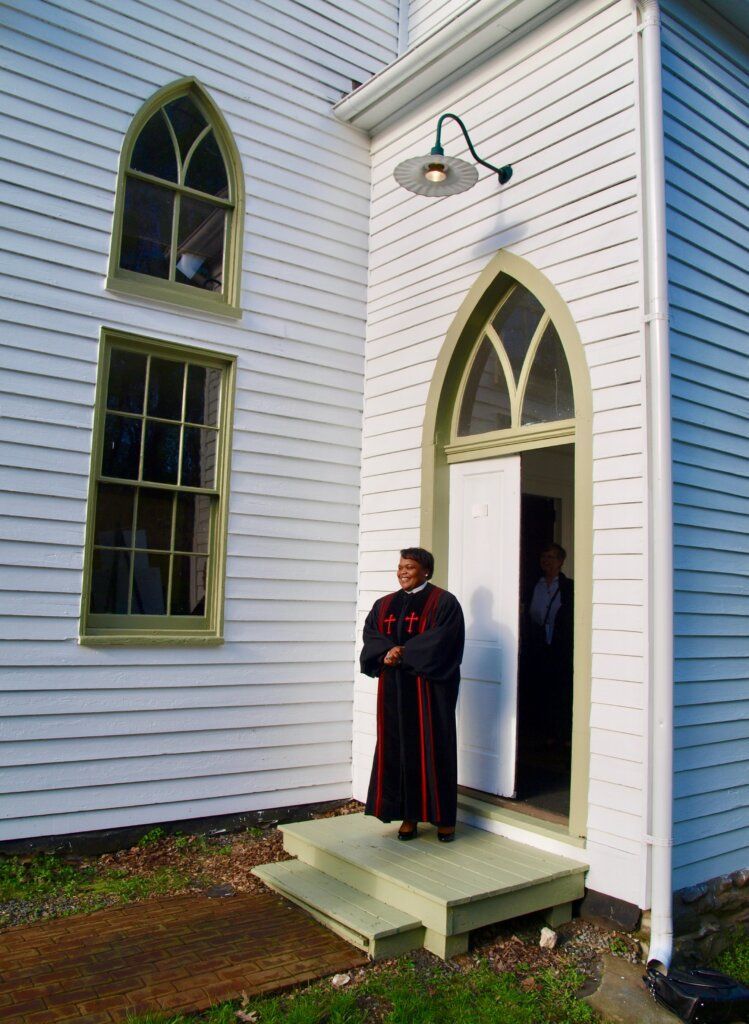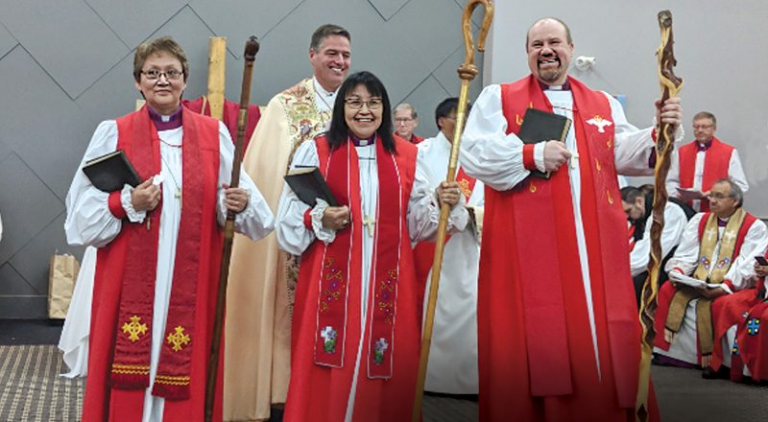Pentecostalism & Fresh Expressions: From Street to Sanctuary and Back Again
Editor’s Note
The Fresh Expressions movement is a Holy Spirit-led approach to cultivating new Christian communities. Inspired by the church of the Apostolic era, it is not limited to any one denomination or tradition, but is “ecclesially flexible.” In this series, Fresh Expressions and the Historical Streams of the Church, readers will hear from Fresh Expressions team members and missional leaders from different streams of the church who will share how this mission model brings out the best of their history, theology, and charism, and how it can bring new life to local congregations.
This is a confusing time to be a church leader. We are watching the version of church that was invented by the reformers, centered around large gatherings, preaching and programming, slip some gears. At the same time, we are watching new, often smaller, forms of church come into focus. These shifting ecclesial forms, or as we call them, “fresh expressions of church,” can look different from one denomination to another. So, what could these changes mean for the 655 million Pentecostals around the globe?
Azusa Street: A Fresh Anointing and Fresh Expression of Church
The church I pastor in Seattle is a product of the Azusa Street revival that occurred in Los Angeles in the early 1900s. The stories of the fresh anointing that fell during those days drifted up the coastline to captivate and inspire our church’s founding. In fact, we became the first Pentecostal church to open in the city in 1923, and immediately joined the Assemblies of God, which has since grown into the largest Pentecostal denomination in the world. During those first decades, our church, like the Azusa saints, was a rugged group of Christ-followers who prayed hard, healed people, and boldly established the name of Jesus as the hope of the world.
The Azusa Street outpouring was led by William Seymour – a black pastor, and Charles Parham – a white pastor. This is a beautiful fact to consider – especially in this day of racial tension. The Azusa story reveals how heaven attends earth when brothers and sisters of all colors dwell together and advance the work of Christ in unity. While I cannot claim that all Pentecostals across the land became immune to racism, it is part of our founding story that has served as a cornerstone of hope and an ongoing call to reconciliation wherever we go. But this outpouring was not only a story of racial unity, it was also marked by divine power pouring onto the earth like the Book of Acts.
The saints at the Azusa mission had determined to make a significant difference in the lives of people living on the worst streets of LA. Crime, alcoholism, and homelessness were ruining thousands of lives, with people living and sleeping on the sidewalks. It was into this painful and broken environment that heaven opened and a new movement of the Holy Spirit flooded the hearts and efforts of the Azusa saints. It was as if Heaven was saying, “if you all are going to dive into the lives of these broken people, we are going to empower you to heal, pray, and lift this broken morass of humanity to wholeness.” If there is another way to interpret this heavenly outpouring, I do not know it.
Today’s Pentecostalism is a worldwide movement with millions of adherents in established denominations like my own Assemblies of God. But it began as a fresh expression of Church, following the Spirit’s guidance to establish new forms of Christian community for the needs of the time. Where the movement remains true to this heritage, it will continue to flourish in both familiar and unforeseen ways.
Pentecostals Were Built for this Secular Moment
While the Reformation Era has mostly been about teaching Scripture in sanctuaries, this post-Christian Era will require us to enter under-gospeled circles and start doing church for them in a manner that befits their social patterns. When Melodee and I became the pastors of this Seattle church in 1999, there were 425,000 churches across all denomination lines serving in the body of Christ. Now, there are only 300,000 churches. In other words, the past 24 years has seen a sobering decline of the Sanctuary Church.
But while the sanctuary is fading, new, fresh forms of church are on the rise. While this is scary news for some, it should be enlivening for Pentecostals. After all, we were born on the streets. We thrive in the broken corners of society. The healing power within us starts pouring out of us once we are doing life and sitting at tables with the secular population.
This is why our Sanctuary-style church in Seattle eventually transitioned to a network called Community Dinners. Instead of sitting in rows with other Christians remembering the work of the Spirit, we sit at tables with our neighbors, and pray for a new outpouring to happen at the meals we share.
Dinner Churches are just one of the many micro-expressions of Church that are rising up when the body of Christ begins to roll up their sleeves, stir up their boldness, and start turning strangers into friends. God is calling the entire Jesus family to take risks and find new ways to embody the Church for our unique moment. Pentecostals should recognize this from our own history and sprint towards the call. After all, this is squarely in our wheelhouse.
In 2013, I sat in an Oxford lecture room with numerous other Pentecostal leaders, all of whom were pursuing doctoral degrees. Dr. Wonsuk Ma was lecturing that day on “The State of the Gospel in the World.” He ended his presentation by saying, “While we don’t know how, we know that the Pentecostals will figure largely into the future of world evangelism.”
Those words pierced me, because as a Pentecostal leader, I didn’t have a good practical vision for how we were supposed to engage the future harvest of the world. Our sanctuary-centric Pentecostal expression did not suggest an obvious role in this waning Reformation era. But in the last ten years, the Fresh Expressions movement has come more fully into focus. The COVID-19 pandemic has revealed the limitations of our sanctuaries to breathe healing into a painful world.
Perhaps it is time for us to stop limiting the Holy Spirit to a suit and a sanctuary, and start imagining the Holy Spirit wearing jeans, sitting in a community center, and breathing healing and strength through us into the lives of secular strangers.
Come on, Pentecostals…we are built for this moment!

About the Author
Verlon Fosner
Dr. Verlon and Melodee Fosner have led a multi-site Assemblies of God dinner church in Seattle, Washington since 1999 (www.CommunityDinners.com). They joined the FX team in 2016 and founded the Dinner Church Collective. In this decade when more churches in the U.S. are declining than thriving, and when eighty churches a week are closing, Verlon and Melodee sensed that a different way of doing church was needed for their 85-year old Seattle congregation. It soon became obvious that they were not the only ones in need of a different path. There is a lot to be gained when church leaders begin to see open doors in the American landscape that they had previously overlooked. Therein lies the journey for those who will forge a new future for the American Church.












